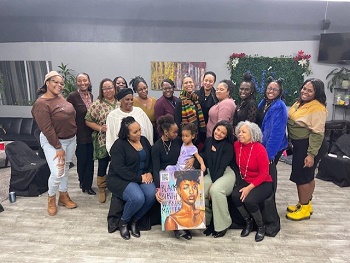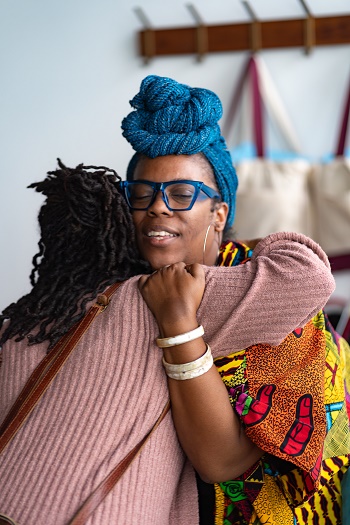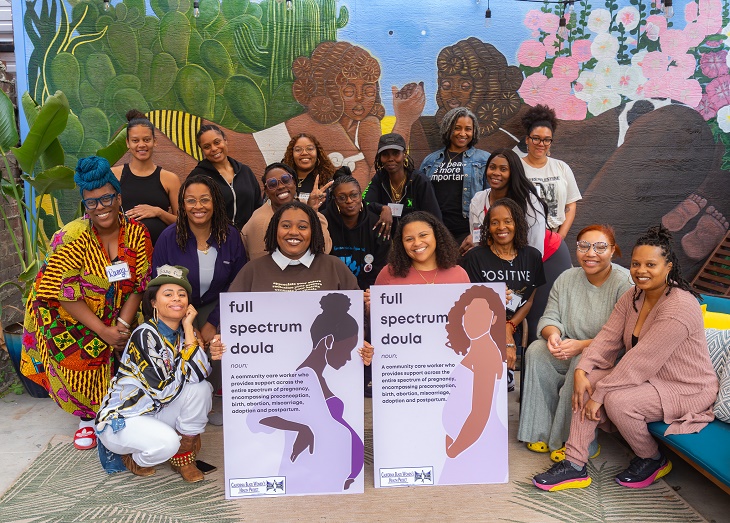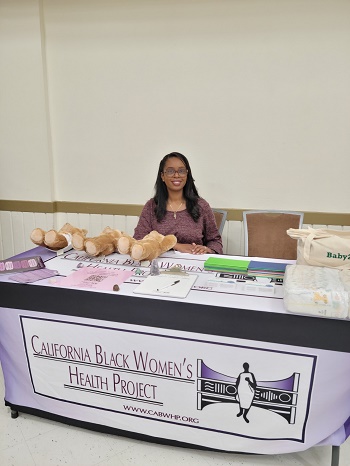Written by LaNeisha Stasin
California Black Women's Health Project

California Black Women's Health Project (CABWHP) is a statewide nonprofit organization dedicated to improving the health and well-being of Black women and girls through advocacy, education, support, and policy. For 30 years, CABWHP has played a critical role in addressing health disparities, promoting health, and improving health and well-being for Black women, girls, families, and communities. We are focused on addressing social, systemic, and structural determinants of health, and our programs focus on a wide range of areas where Black women and girls face the most severe health disparities. I'm guessing. This includes maternal and child health, reproductive health, mental health, COVID-19, and violence prevention. , aging etc.
Black women and those giving birth are three times more likely to die from pregnancy-related causes than white women, so supporting maternal and reproductive health remains a priority for our organization. Black women and those giving birth are also more likely to experience life-threatening complications such as preeclampsia, postpartum hemorrhage, blood clots, and premature birth. Our Maternal and Reproductive Health Program was designed to spread awareness about and address these issues. Through our programming, we are committed to advancing Black maternal health outcomes, because studies have shown that these increased risks impact Black women and those who give birth, regardless of income level or education. highlights the importance of recognizing the impact of structural racism and bias in

“Racism in medical practice leads to discriminatory care. When gynecology in the United States began with inhumane practices and experimentation on Black women and girls, these deep-rooted issues regarding the health and reproductive care of Black women in particular “It's very difficult to keep the problem out of the medical field,” said Laena Grandberry, director of the Mother's Bureau. CABWHP Reproductive Health. “The discriminatory ideologies and misconceptions taught as a result of these practices unfortunately remain in medical practice today. It is essential to address the medical bias and structural racism that contribute to poor outcomes.”
Research shows that having Black midwives, midwives, and doulas improves birth outcomes. That's why our Maternal, Child and Reproductive Health team collaborates with other community-based organizations and Black midwives to support Black mothers and birthing women seeking culturally competent care. The team has launched 150 projects, including full-spectrum doula training, Shower the Village events focused on providing mental health resources and other supports for Black midwives, and a Black Midwifery Business Toolkit that provides business guidance. We have hosted numerous midwife support circles and activities.

In addition to strengthening the capacity of Black midwives, our Maternal and Reproductive Health team engages Black mothers and birthing people through a variety of health-focused educational and empowering events, seminars, and trainings. I'm educating. Additionally, the team advocates for policy and system changes across the state. CABWHP is a partner in policy and advocacy efforts such as the Monnibus Act, the California Reparations Act, doula and home visit medical benefits, and improvements to paid family leave. CABWHP is also involved in community-centered research to improve birth outcomes for Black women, partnering with the University of Southern California, the University of California, San Diego, and the California Department of Public Health to conduct several studies. We are publishing a report.

More than 7,000 people have received maternal and reproductive information through our team's outreach efforts. The team currently provides a platform for Black women to share their personal reproductive health stories and advocate for policy changes that improve maternal, sexual, and reproductive health outcomes for Black women in the post-Roe era. We are creating stories that can inform people. Our team and community partners are also preparing for a variety of Black Maternal and Child Health Week initiatives and events, including:
- Our Bodies Are Still Ours: Reproduction Justice Now – A virtual gathering of Black birth justice advocates, birth workers, and Black families.
- Inland Empire Perinatal Equity Provider and Community Summit – A two-day event focused on improving health equity and quality of life for Black and African American pregnant women and their families.
- Sankofa Birth Workers Rest and Recovery – Health Event for Black Birth Workers in the Inland Empire
For more information on upcoming events and other ways to get involved, please visit https://www.cabwhp.org/mrhealth.html.


